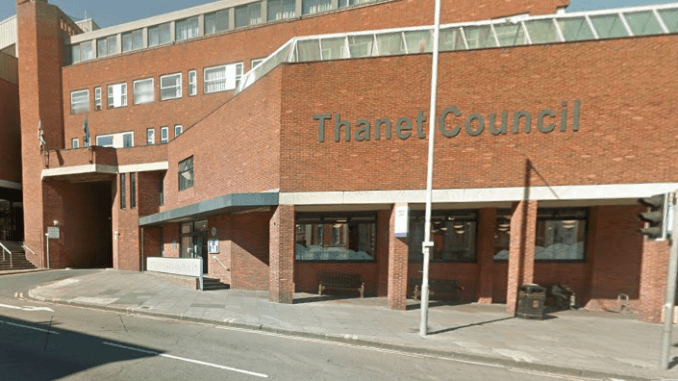
Cabinet members at Thanet council have agreed a budget for 2019-20 that includes a 2.99% hike in council tax and savings of £1.3 million as well as £3million earmarked for refurbishment or new authority offices.
The council must plug a £1.8million shortfall or be at risk of a “significant risk of overspending the proposed budget.”
The cuts come amid falling income from Government. The Revenue Support Grant to Thanet from central government is estimated to be £97,000 for the 2019-20 financial year. In 2018-19 it was £809,000 and in 2017-18 the grant stood at £1.446m. This is compared to £6.636m in 2013-14.
There will be no central government grant from 2020-21.
Funding cuts
The New Homes Bonus allocation to Thanet has been slashed to £600,000 – a whopping £400,000 lower than the 2018-19 allocation.
A Kent and Medway bid to be a pilot for 75% business rates retention in 2019-20 failed meaning the council will be part of a Kent pool receiving 50% business rates retention.
There has also been a cut of £78,000 in the allocation from the Government towards housing benefit administration.
The council will receive a one-off payment of £76,000 in redistributed business rates.
Council tax
Thanet needs a budget amount of £16.6 million for the coming year. Measures to raise funds include the 2.99% council tax rise, which will raise £ 43,763.27.
The hike will mean a Band D home will pay £233.19 for Thanet council’s share of the annual council tax, an increase of around £6.75.
Thanet District Council receives just 13p in every £1 of council tax. The remainder goes to: Kent County Council, Kent Police, Kent Police and Crime Commissioner, Kent Fire and Rescue Service and Town/Parish Councils.
Assets
Funds will also be raised through fees and charges, which were agreed in November, such as costs for parking, burials and waste disposal.
There will also be a continued sell-off of council assets, currently estimated to be worth some £244 million.
The council is hoping to raise £5.1million through asset disposal towards the 2019-20 budget costs.
There will also be a review of public toilet provision, pavilions and shelters.
If a ferry service contract for Ramsgate Port is not signed by the end of January a whopping £500,000 of planned investment will be cut along with a further £130,000 savings, totalling £630,000 (or £730,000 in a full year).
There will also be ‘efficiencies’ made within East Kent Housing which is responsible for local authority homes in Thanet, Shepway, Dover and Canterbury.
Council office spend
However, there are also plans for spending which include £1.2million on Ramsgate Port berths 4-5 so that Brett Aggregates, which carries out concrete batching at the site, can use bigger vessels.
Some £3million is also earmarked for either refurbishment of Thanet council’s offices in Cecil Square or possibly the purchase of a new building.
Cabinet Member for Finance, Cllr Ian Gregory said: “This building has a lot of problems, energy efficiency does not meet the requirement of a commercial property, two lifts are always breaking down and a lot of money needs spending on the building. We will look at modernisation and refurbishment of the building or look at alternative accommodation.”
Rents
Thanet council will also set aside £200,000 to cover bad debts which are forecast to grow due to increased rent arrears and the effects of Universal Credit.
Social and affordable rents will be decreased by 1% in line with the government rent guidance. The average rent is currently £80.36, with an average decrease of 77p per property.
Spending on new build properties or the buying of properties has a reserve of £5.37m.
The council’s reserve fund stands at £2m but is estimated that this may be spent during 2022-23, if the future funding gap is not addressed.
Significant funding cuts
Cllr Gregory said: “The draft budget is being recommended to ensure it can contribute towards meeting the council’s priorities and delivering key services to local people. The council has experienced a significant reduction in funding received from Central Government – £5m reduction over the past five years.
“Whilst we are not an affluent council, we are certainly not on the verge of bankruptcy and are taking these steps to ensure that we meet our legal obligation to deliver a balanced budget. We’ve had to make pragmatic choices to ensure we protect the things we know matter most to local people and will be debating this in full when we meet as a council next month.”
The budget recommendations will go to Full Council on Thursday 7 February for approval.

